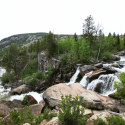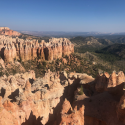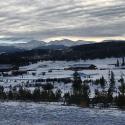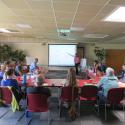Goal of VCAPS
Originally developed by the Carolinas Integrated Sciences and Assessments (CISA) RISA program and the Social Environmental Research Institute (SERI), VCAPS helps communities become more resilient to weather and climate change
VCAPS is designed to support communities to:
-
Engage in dialogue about the impacts of future weather and climate threats
-
Summarize and integrate local knowledge and experience about how the community will be impacted
-
Identify gaps in data, knowledge, or understanding
-
Think strategically about actions that can be taken to increase resilience in the short and long term
Why VCAPS is unique:
-
VCAPS is not just about providing climate information; the process helps local decision-makers use a systems-thinking approach to make sense of how climate and weather hazards are linked to multiple social, economic, health and other consequences in their community; it connects knowledge with local adaptation options.
-
VCAPS helps communities create an inventory of public and private actions that can be taken to reduce vulnerability to a specific hazard from multiple angles. Actions are documented in real-time in diagrams.
-
The process itself is designed to generate dialogue, shared understanding, and collective commitment and accountability to action.
-
In essence: VCAPS provides structured discussion so a group can pool their knowledge of an issue in an efficient manner and document it visually.



